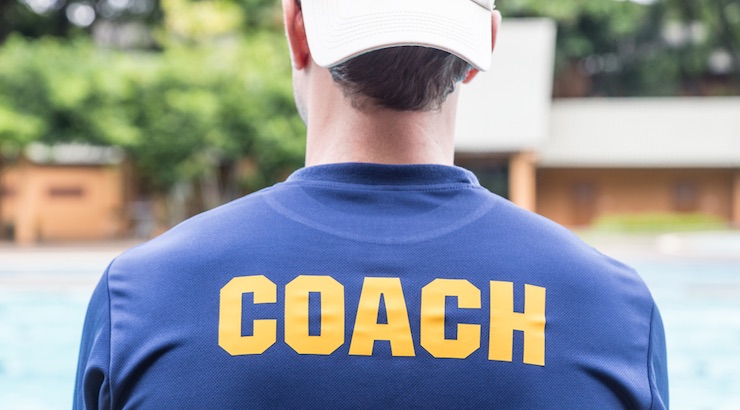Soccer Advice From A Pro: Coaches, Try ToBe A Autonomy-Supportive Coach
What does it mean to be an effective soccer coach? Great insights from Dan Abrahams who works with coaches and players in the English Premier League, as well as those in the MLS and USL on this side of the Atlantic.
SoccerToday columnist Dan Abrahams on the new trend in soccer coaching.
I love to watch great coaches coach.
I love to see them in action – passionate, enthusiastic, and intelligent. Great listeners, fonts of knowledge, sources of confidence, quick thinkers.
And those are just a few of the many attributes that great coaches possess in my opinion. Just a few characteristics that coaches would do well to live by.
So what does great coaching look like to you? What does it feel like? What do you think players experience when they’re exposed to great coaching?
No doubt coaches reading this article will have different answers and different viewpoints. And that’s a good thing.

Coaching should never be packaged one way or delivered in one flavor. A coaching landscape filled with variety and providing players of all ages and levels with a rich kaleidoscope of experiences – that’s optimal in my humble opinion – with one caveat: No bullying. Never ever any bullying. There’s no need.
What Works at Different Levels and with Different Age Groups
Of course, as research advances into coach development and teaching, we can start to become more certain as to what may work better in certain coaching landscapes and why.
Take, for example, the practice of autonomy-supportive coaching. “What’s that?” I hear you cry! “That sounds complicated,” I hear some of you grumble. And maybe it is, just slightly. But that’s ok.
It’s important to think about your coaching craft in order to improve.
The traditional model of coaching goes something like this: “I am the coach. I have a lot of knowledge in my head about my sport. I’m going to impart this knowledge to you. That is what it is to be a coach.”
And, hey, look, that’s not completely wrong. Many great coaches have superhuman volumes of knowledge. But there are other views on what coaching is and what it is to be a coach. Autonomy-supportive coaching is one of them.
In simple terms being autonomy-supportive is to engage in a coaching process that empowers players to find their own unique solutions to the problems they face on and off the pitch.

This is my definition and it’s related to soccer.
It’s being player-centered.
It’s accepting that you, the coach, don’t have all the answers for all of the players and that the players themselves are in a pretty strong position to brainstorm, problem-solve and reach their own conclusions.
So why would we engage in autonomy-supportive processes? Here are several reasons:
- Because soccer is a complex game that constantly changes shape and form as it’s played. It has some structure to it, but it’s very fluid.
- The more independent players are in their decision-making, problem-solving and solution-finding – the better the player they can (probably) be.
- We have no idea what it’s like to live in the nervous system of another individual. Not a clue!
- No matter how good a coach you are, you can never see the world through the eyes of your players. So having a set of coaching tools to help players find their own unique solutions is a pretty powerful coaching weapon to possess
- In line with the above, every player is a person who has different needs, hopes, doubts, beliefs, experiences, cultures, and values. I could go on!
- In other words, every person on your team is different, and if we’re looking at becoming accomplished at managing and changing behavior, we probably have to respect that fact.
- When players (people) find their own solutions, these solutions resonate at a deeper level for them. That sounds kinda funky I know, but look at this way: think about a time when you were in a spot of bother, and someone tried to tell you how to deal with your situation. More than likely you pushed back. More than likely you said, “Yeah thanks, but I just don’t see it that way”.
- What you needed at that time was someone who empathized with your plight and helped you to come up with your own solutions.

So how do you become an autonomy-supportive coach?
Well, just be open-minded to start with.
Just be open-minded and notice the times when you’ve given a player a solution when you could have empowered that player to find their own solution. For example:
“I’ve noticed you’ve had some challenges passing the ball out to the full-back. What do you think you can do to improve that? Is there anyone you know who does that really well? Maybe someone you know or even a superstar soccer player? Can I challenge you to go away and work on it and come back and give me some thoughts?”
“I know we’ve been leaking goals of late. I’d like you, four defenders, to go away and come back to me with some ideas as to how we can shore up the defense. We’ve got video footage you can use. I’d like that done by next week please.”

So what this coach has done is to ask very simple open questions. The coach has empowered players to talk about the challenge, to provide their point of view.
And, there’s another very clever thing this coach has done here?
Hint: it’s a pretty clever use of language.
This coach has balanced autonomy-supportive coaching with controlled coaching. How? By asking players to find their unique solutions giving them the space to become students of the game and students of their game, while at the same time placing some demands on them.
The demand in the first example is for the player to think about someone he or she can model and then to go away and work on the challenge. The demand in the second example is for the defenders to go and review their games, discuss why they think they’re conceding so many goals, and to come up with ideas to defend a little better.
Perfect! A balance and a blend of autonomy-supportive and controlled coaching. This gives the coach a platform to eventually use his or her expertise, but not at the expense of the players being involved in the coaching process.
So there you have it. Be open-minded and notice when you can ask an open question to help players to think and find solutions themselves. And then you can support the process.
Maybe then you can use that incredible amount of knowledge you have as a coach. As simple as that.

Dan Abrahams is a global sport psychologist specializing in soccer and a best selling author. Abrahams’ books are available on Amazon. He is based in England and has some of the leading turn-around stories and case studies in English Premier League history.
Abrahams is sought after by players, coaches and managers across Europe and his 2 soccer psychology books are international bestsellers. He is formerly a professional golfer, is Lead Psychologist for England Golf and he holds a master’s degree in sport psychology.





